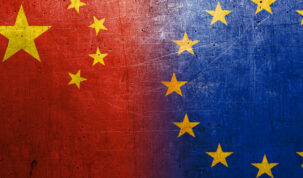Roman poet Ovid stated the above latin quote in his work Tristia about 1000 years ago, and French philosopher René Descartes adopted it as his motto: He who has kept himself well hidden has lived well.
But what if you have conceived an invention and you or your employer planning to patent it – is it then at all possible to do so, that is not to be mentioned as the person behind the invention?
The answer is yes! There is an in practice rarely used possibility, which is available in surprisingly many jurisdictions. Namely the inventor’s right to waive being mentioned.
By now you are probably beginning to wonder why you would desire not to be mentioned in connection with your undoubtedly brilliant invention. For that, there may be several good reasons.
It may for instance be that you do not want to be connected with the invention due to it belonging to a technical field being controversial in one way or another. Take, for instance, Alfred Nobel who invented dynamite and patented it. As we know he eventually instituted the Nobel Prize as he later came to regret having made an invention taking so many lives and no longer wanted the money he made off of it. This blogger is pretty sure that Alfred Nobel would have wished that he had known of the possibility of waiving his right to be mentioned as the inventor.
A modern take on the controversial type of invention may be those related to computer software. If possible, patenting your computer software-related invention makes very good business sense. But as many within the software business have strong feelings and opinions about patenting, staying anonymous might just be preferable.
It may also be that there is contractual or other purely business related circumstances making it preferable for the inventor to remain anonymous. This may be particularly relevant for inventions connected with national security interests. Of course, in such a case the patent application itself will most likely be secret, but even so the secrecy will at some point be lifted and even at that time it may be preferable for the inventor to remain anonymous.
Or it may simply be that you feel the same as Australian singer/songwriter Sia, who is not only famous for her music, but also for not wanting to be famous and for trying to stay as anonymous as possible.
Now, how to waive the inventor’s right to be mentioned? And where is it at all possible?
To take the last question first, you will be well covered by applying for regional patents where available as the treaties/conventions governing European, Eurasian, ARIPO and Golf Cooperation Council patents all make it possible, while the national law of many of the member states does not. Further countries include Brazil, Mexico, Russia and Ukraine.
On the other hand, important countries such as the USA, China, Canada, India, Japan and South Korea seem not to have this possibility enshrined in their patent law.
And generally, waiving the inventor’s right to be mentioned is pretty straight forward. With a provisio for national peculiarities, generally all it takes is to file to the relevant patent authority a declaration signed by the inventor stating that he or she wishes to waive his or her right to be mentioned.
Troels Peter Rørdam, European Patent Attorney & Certified Danish Patent Agent




